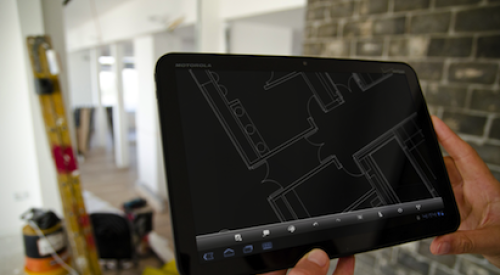|
Name: Bob Cartledge
Company: T.W. Lewis Homes, Phoenix Years as superintendent: 14 Customer survey after close: 4.8 on a scale of 5 Units carried per quarter: 21 Days ahead/behind schedule: 20 ahead Homes delivered last year: 33 Value of homes delivered: $13.2 million Hard-cost variance: $390 per house Customer survey after pre-walk: 4.2 on a scale of 5 Average days to correct punchlist items: 3.3 |
Building 3,000- to 4,000-square-foot homes at a $500,000 price point, Bob Cartledge succeeds by making the most of an ethos and a system that have served his company well through the years. Honesty, integrity and fairness are words that Cartledge says guide his every business decision.
Zero deviation from zero-defect pledge: Cartledge puts a lot of stock in a zero-defect pledge to T.W. Lewis customers. Key to the program is a series of walk-throughs on which items deemed lacking by customers are continually brought up to the level of satisfaction at each major phase of construction.
Final walk-throughs are smooth mainly because the customer and superintendent are working partners by that point. That, and the home has been checked out so thoroughly along the way that there is little chance for surprises at the end. Cartledge's years as a customer service manager for a home building company are apparent in his emphasis on listening and his systematic approach to building rapport with his buyers. They call, and he drops what he's doing to satisfy them.
Helping six or eight people at once: From 7 a.m. to 4 p.m., Cartledge, his assistant superintendent and his technician handle six or eight questions/problems at any given moment. The emphasis is on handling them quickly and collaboratively as they arise. Nothing is set aside for later unless it's at the very end of the day. Keeping the work moving at all deliberate speed is the goal.
"You have to be able to work with your people," says Cartledge. "You have to work through situations and projects. I'm on every home site, every day, to meet with every trade, to go over all of their paperwork. I make sure they understand what they are doing and keep things flowing. This is critical because if you don't meet with them and you leave them, invariably they are going to make a mistake. Then you've got rework to do."
For this reason, trailer time, planning and scheduling happen exclusively before and after building hours. The responsiveness and teamwork pay dividends in loyalty and respect from the trades. Small items beyond the scope of duties get done without asking and without being run through the trade's central billing office.
A three-week schedule updated hourly: Trades get frequent heads-up calls from Cartledge when deviations from a three-week schedule occur. "One thing you have to do for your team is give them plenty of notice."
What the trades say: "Bob is proactive at giving us all the information we need to be successful. We are not in the dark. His product is semicustom, and there are a lot of options that do not always work out in the field. We usually spot-check the plans together and see how we are going to achieve something. He gets out of the trailer and works with the trades hands-on. He makes it a win-win for everybody." -- Kevin Selfridge, manager, Younger Bros. Construction Inc. (framing), Phoenix
Audio Clips
Bob on what sets him apart as a superintendent
Bob on keeping trades workers happy
Bob on dealing with a difficult foreman
Bob on guiding a homeowner through the construction process
Bob on learning to delegate
Bob on scheduling
Bob on being available for customers












